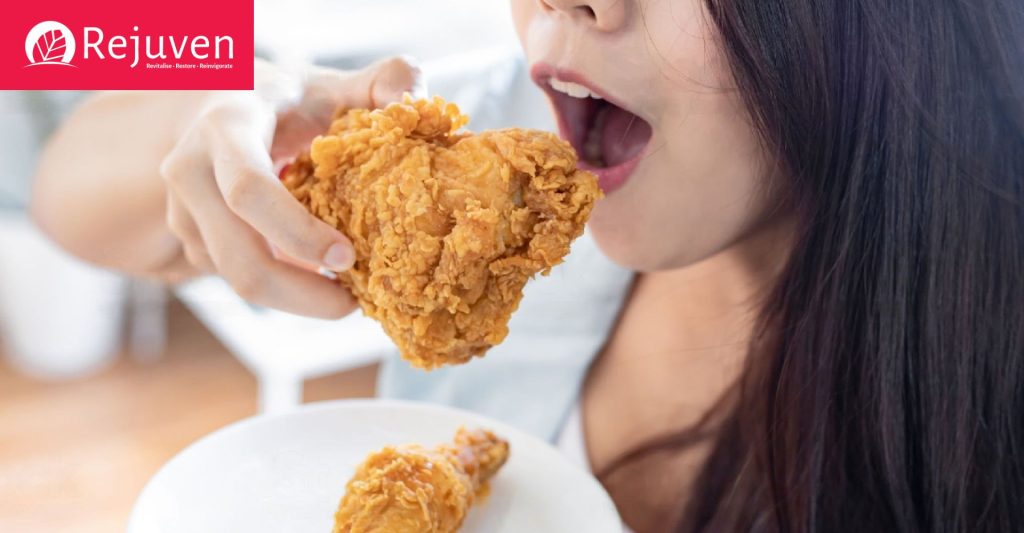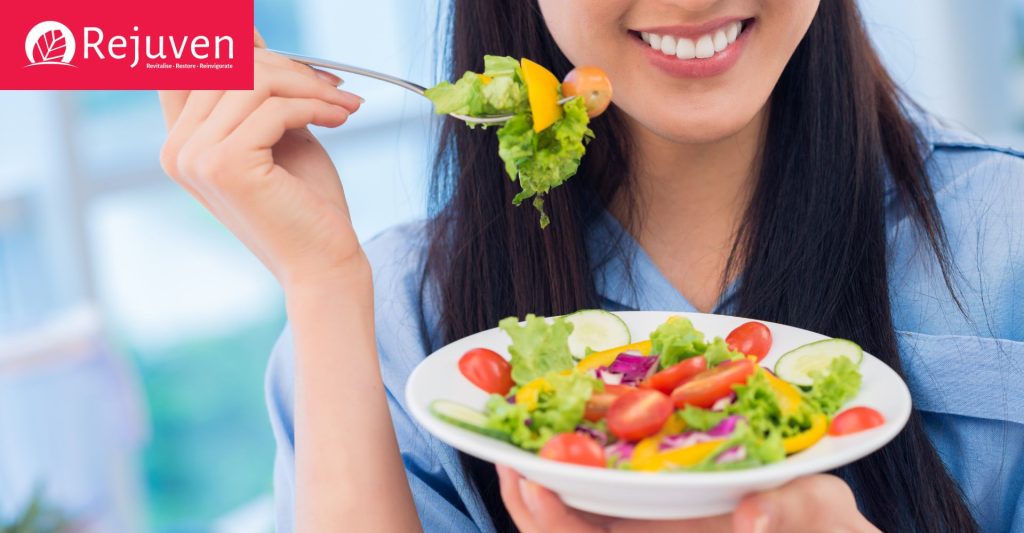
What to Avoid Eating After Surgery According to Traditional Chinese Medicine
Traditional Chinese Medicine (TCM) has a long history of using diet to promote healing. After surgery, it is especially important to eat foods that support your body’s natural recovery process. However, there are also certain foods that can hinder healing and should be avoided. This blog post will discuss the foods that you should avoid after surgery, according to TCM principles.
4 foods to avoid after surgery
Foods that could potentially result in constipation ought to be avoided.
Following surgery, maintaining adequate fibre and fluid intake may be challenging, resulting in constipation. This can put undue strain on your incisions and stitches, as well as impede mobility. It is essential to consume high-fibre foods like whole grains, fruits, and vegetables, and to drink plenty of fluids like water, broth, and juice to avoid constipation after surgery.
Food that contributes to constipation includes:
- White bread and pasta
- Refined cereals
- Dairy products
- Meat
- Red meat
- Fried foods
- Sugary drinks
We recommend eating and drinking this instead to avoid constipation:
- Fruits and vegetables
- Whole grains
- Legumes
- Nuts and seeds
- Water
Try to avoid consuming spicy food
Spicy foods can make it hard for the digestive system to heal after surgery and cause heartburn and indigestion, especially if you have a sensitive stomach. It’s best to avoid spicy foods and eat bland, easy-to-digest foods like plain rice, boiled or baked chicken, steamed vegetables, and fruit instead. Spicy foods can be part of a healthy diet in moderation but check with your doctor first.
Alcoholic Beverages
Alcohol can dehydrate the body, interfere with the healing process, and increase the risk of bleeding after surgery. It’s best to avoid alcohol completely to aid in the recovery process. Drink plenty of water and hydrating fluids instead. Check with your doctor before consuming alcohol after surgery.
Avoid Highly Processed Foods
Processed foods have low nutrition and high unhealthy fats, sugar, and sodium. They can hinder digestion and healing.
Examples of Highly Processed Foods:
- Sugary drinks.
- Syrups and jams.
- Chocolate and candies.
- Potato chips and pretzels.
- Sauces, dressings and gravies.
Eating whole, unprocessed foods with fruits, vegetables, whole grains, and lean protein in a balanced diet, and drinking fluids can help with recovery after surgery.
11 Foods to Eat After Surgery
Surgery is a significant life event, and it’s important to support the healing process by maintaining a healthy diet. Eating well after surgery can help speed up recovery and enhance your overall well-being. Here are 11 foods that are good to eat after surgery.
Clear and full fluids are essential
To promote recovery after surgery, staying hydrated is crucial. Drinking clear fluids like water, juice, and broth can help achieve this goal. As soon as you can tolerate them, you can incorporate full liquids such as yoghurt, milk, and smoothies into your diet.
Consuming Whole Grains
Whole grains are a rich source of vital nutrients like dietary fibre, vitamins, and minerals that are necessary to maintain good health. Consuming whole grains can promote digestive health by providing the necessary fibre needed to maintain a smoothly functioning digestive system.
Here are 5 examples of whole grains:
- Brown rice
- Quinoa
- Oats
- Whole wheat
- Barley
Consume more Fresh Produce
Fresh produce is significant in a healthy diet as it consists of essential nutrients such as vitamins, minerals, and antioxidants. It also supplies fibre that aids in maintaining a healthy digestive system. For optimal well-being, it is recommended to consume a variety of fruits and vegetables of various colours to obtain a broad range of nutrients.
Example of fresh produce:
- Apples
- Broccoli
- Carrots
- Spinach
- Tomatoes
Don’t Forget Lean Protein
Including lean protein sources in your diet is essential for sustaining a healthy and well-rounded lifestyle. These foods facilitate the repair and healing of body tissues and provide crucial nutrients such as amino acids, iron, zinc, and vitamin B12.
In contrast to other protein sources, lean proteins are typically lower in saturated fat and calories, making them a fitting choice for individuals seeking to manage their weight or decrease their chances of particular health issues.
Some examples of lean protein sources are:
- Chicken
- Fish
- Beans
- Tofu
Reach for Healthy Fats
Healthy fats are fundamental to maintaining overall health and well-being. Foods abundant in healthy fats, such as avocados, nuts, and seeds, possess anti-inflammatory properties that can aid in the reduction of inflammation throughout the body.
Inflammation is a natural response that occurs in the body when it is injured or infected, but chronic inflammation has been associated with the development of various health issues, including heart disease, diabetes, and cancer.
Furthermore, healthy fats are an excellent source of essential vitamins and minerals, including vitamin E, magnesium, and potassium, that are critical for numerous bodily functions.
Add Anti-Inflammatory Food to your Diet
Ginger, turmeric, and green tea are examples of foods that can assist in alleviating inflammation and pain in the body. These foods contain compounds that have demonstrated anti-inflammatory properties and can reduce swelling and discomfort.
Moreover, the antioxidants present in these foods help protect the body against oxidative stress by neutralizing free radicals that can cause damage to cells and tissues.
Foods rich in calcium
Foods that are abundant in calcium are essential for maintaining strong bones and teeth. Calcium is also critical for muscle function and blood clotting. Dairy products, leafy green vegetables, and fortified foods are excellent sources of calcium that can help ensure you meet your daily recommended intake.
Foods rich in iron
Iron is a vital nutrient required for transporting oxygen throughout the body and producing red blood cells. Incorporating foods rich in iron into your diet is essential for maintaining good health. Red meat, poultry, fish, beans, and leafy green vegetables are among the best sources of iron.
Consuming these foods regularly can help prevent iron deficiency anaemia, a common condition that can lead to fatigue, weakness, and shortness of breath.
Chinese Soups
Chinese soups, made with lean protein, vegetables, and broth, simmered with anti-inflammatory and healing herbs and spices like ginger, garlic, turmeric, and ginseng, offer a balanced and nutritious food option to aid post-surgical recovery. These soups provide essential nutrients that support the body’s healing process, while their warm and comforting nature can promote a sense of well-being.
Learn more about Rejuven’s Herbal Essence Post Surgery Soup.
Fish Essence
Fish essence is a type of traditional Chinese medicine made by simmering fish bones and other ingredients in water. It’s thought to offer various health benefits, such as supporting wound healing, minimizing inflammation, and enhancing the immune system.
Chicken Essence
Chicken essence is a traditional Chinese medicine prepared by simmering chicken bones and other ingredients in water. It’s believed to provide several health benefits, such as supporting wound healing, reducing inflammation, and enhancing the immune system.
Post-surgery food catering in Singapore
Overall, these herbs and soup recipes have been used for centuries in Chinese medicine to promote health and wellness. However, it’s important to consult a qualified healthcare practitioner before trying any new herbs or remedies.
As the popular idiom says “Let Food be Thy Medicine” which means that the food you’re consuming can have a powerful impact on your health. If you are keen on improving your overall diet, you may contact us for a meal consultation for free. Additionally, our food catering services cover most areas in Singapore so contact us at 83212688 to make your booking today!
Frequently Asked Questions
A: According to TCM, the four foods to avoid after surgery are:
- Foods that can cause constipation, such as white bread, pasta, refined cereals, dairy products, meat, red meat, fried foods, and sugary drinks.
- Spicy foods, which can irritate the digestive system and cause heartburn and indigestion.
- Alcoholic beverages, which can dehydrate the body, interfere with the healing process, and increase the risk of bleeding.
- Highly processed foods, which are low in nutrition and high in unhealthy fats, sugar, and sodium.
A: Some good foods to eat after surgery include:
- Clear and full fluids, such as water, juice, broth, yoghurt, milk, and smoothies.
- Whole grains, such as brown rice, quinoa, oats, whole wheat, and barley.
- Fresh produce, such as fruits and vegetables.
- Lean protein, such as chicken, fish, beans, and tofu.
- Healthy fats, such as avocados, nuts, and seeds.
- Anti-inflammatory foods, such as ginger, turmeric, and green tea.
- Foods rich in calcium, such as dairy products, leafy green vegetables, and fortified foods.
- Foods rich in iron, such as red meat, poultry, fish, beans, and leafy green vegetables.
A: Some Chinese foods that are good to eat after surgery include:
- Chinese soups, made with lean protein, vegetables, and broth, simmered with anti-inflammatory and healing herbs and spices like ginger, garlic, turmeric, and ginseng.
- Fish essence, which is a traditional Chinese medicine made by simmering fish bones and other ingredients in water.
- Chicken essence, which is a traditional Chinese medicine prepared by simmering chicken bones and other ingredients in water.
A: There are a number of companies that offer post-surgery food catering in Singapore and Rejuven is one of them. Alternatively, you can search online or ask your doctor or dietitian for recommendations.

